
When the World Health Organization (WHO) published the 2018 Global Status Report on Road Safety, they estimated that globally, more than 1.35 million lives are lost annually in road crashes. Within the report, country profile information is provided that reports both the number of people ‘reported’ as killed and the ‘estimated’ number. Often the two numbers are quite different.

When the World Health Organization (WHO) published the 2018 Global Status Report on Road Safety, they estimated that globally, more than 1.35 million lives are lost annually in road crashes. Within the report, country profile information is provided that reports both the number of people ‘reported’ as killed and the ‘estimated’ number. Often the two numbers are quite different.
Globally, there is a major issue with under-reporting of both fatal and serious injury crashes. The World Bank have estimated that on average in low-income countries, just 16 of every 100 crash fatalities are reported, and in middle-income countries, 51 of each 100 fatalities go unreported.
The World Bank have also calculated that for each fatality, the number of serious injuries that occur ranges from 13 to 18. A reasonable estimate is that on average, 15 serious injuries occur for each fatality. Therefore, as a basic ‘rule of thumb’, multiplying the true number of annual fatalities in a country by 15 will provide a reasonable estimate of the number who are seriously injured each year.
Sadly, in many countries, both crash fatalities and serious injuries are being under-reported. There are a wide range of reasons that this occurs.
Comprehensive and accurate fatal and serious injury crash data allows authorities to have a complete picture of all the road trauma that is occurring. It provides information about where these crashes are occurring, the days and times as well as a profile of the victims. Comprehensive investigation will also identify all the factors that contributed to the crash.
For police attending and investigating serious crashes, there is an important role to play in improving serious crash reporting. As an example, in some serious crashes, the true extent of injuries, which can include internal bleeding, organ rupture and concussion, don’t become known for some hours or even days after the collision. By ensuring that crash casualties are contacted, and all injuries recorded, a more comprehensive picture of casualty information can be captured.
Serious crash reporting is not simply ‘form filling’, it is critical information that provides full and complete information on the true harm being caused by serious crashes. It allows governments to prioritize funding to prevent road trauma with knowledge of the true cost. There is an essential role for all police officers attending serious crashes to thoroughly investigate and report each serious crash, all the casualties that result and accurately report all injuries that arise.
Dave Cliff, ONZM MStJ
CEO, GRSP
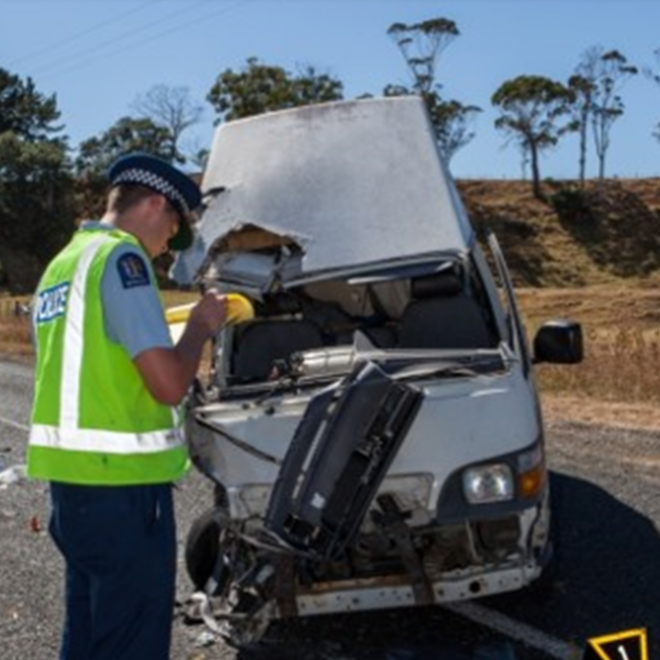
The Global Road Safety Partnership (GRSP) is delighted to announce the appointment of Paul Simcox and Russell Nyman as our Senior Road Policing Advisors based in the Asia Pacific Regional Office in Kuala Lumpur, Malaysia. Additionally, we give a warm welcome to Richard Nyarko who joined our team as a Road Policing Consultant based in Accra, Ghana.
Paul Simcox
With more than 30 years of experience in multiple senior roles in the United Kingdom and New Zealand, Paul Simcox joined GRSP in January 2023. His roles included six years as a serious Crash Investigator in Auckland and five years as a Police Prosecutor and District Prosecutions Manager in the Canterbury region.
Before joining GRSP, Paul was based in the New Zealand Police National Headquarters in Wellington, holding senior road policing leadership roles as the Manager: Police Infringement Bureau and Calibration Services and on secondment to National Operations Road Policing Manager. These roles included oversight of the National Road Policing Centre (NRPC) Assurance Group and membership of the NRPC Senior Leadership team responsible for the delivery of strategic national road policing in New Zealand.
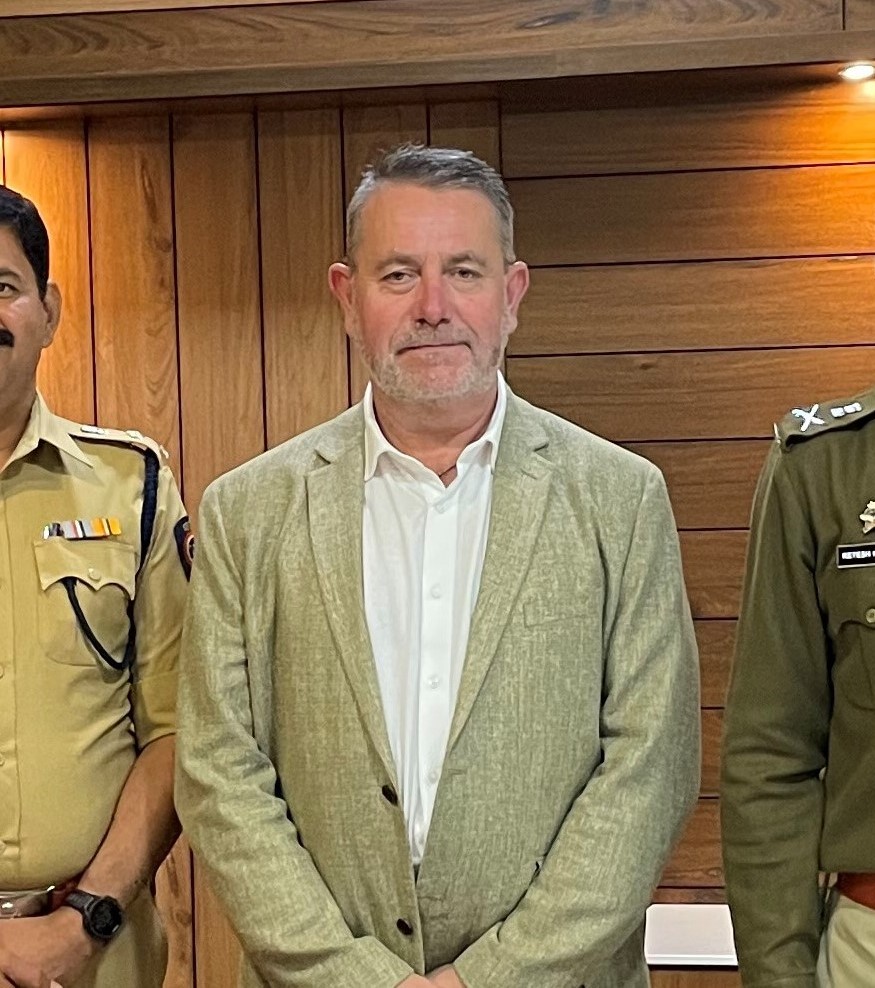
Russell Nyman
Russell served a 30-year policing career with the Metropolitan Police Service (MPS) and the Kent Police in the United Kingdom and retired as a Chief Superintendent for the MPS. He has attended and investigated fatal and serious road traffic crashes and led multi-faceted enforcement operations in partnership with stakeholder agencies.
Additionally, he worked internationally in policing in several countries and is an accredited Senior Investigating Officer. Russ served as Head of Intelligence in addition to being Head of Partnerships and Crime Reduction while at Kent Police.
Prior to commencing with GRSP in January 2023, he was the Head of Oversight of the MPS Operational Policing and National Engagement and was a Senior Lecturer in Policing and Deputy Director Policing Programme at Canterbury Christ Church University. Moreover, he headed the BSc in Professional Policing degree programme, which is the pre-entry degree to UK Policing.

Richard Nyarko
Richard Nyarko joined GRSP as a Road Policing Consultant in January 2023 and possesses over 24 years of experience working in the Ghana Police Service. Currently, Richard is the Motor Traffic and Transport Department Commander of East Legon Accra in the rank of Deputy Superintendent of Police.
Over the past few years, he collaborated with the Bloomberg Philanthropies Initiative for Global Road Safety (BIGRS) in Accra and attended multiple road policing capacity building training sessions; having facilitated some training programmes himself.
As the head of the AMA-BIGRS Task Force team, he led the team in the enforcement of the main risk factors which include drink driving, speeding and the non-use of helmets, seatbelts and child restraint systems. Additionally, he is a Road Policing Executive Leadership Course 2022 (RPELC) alumnus, a training programme delivered jointly by GRSP and the Johns Hopkins University International Injury Research Unit (JH-IIRU).
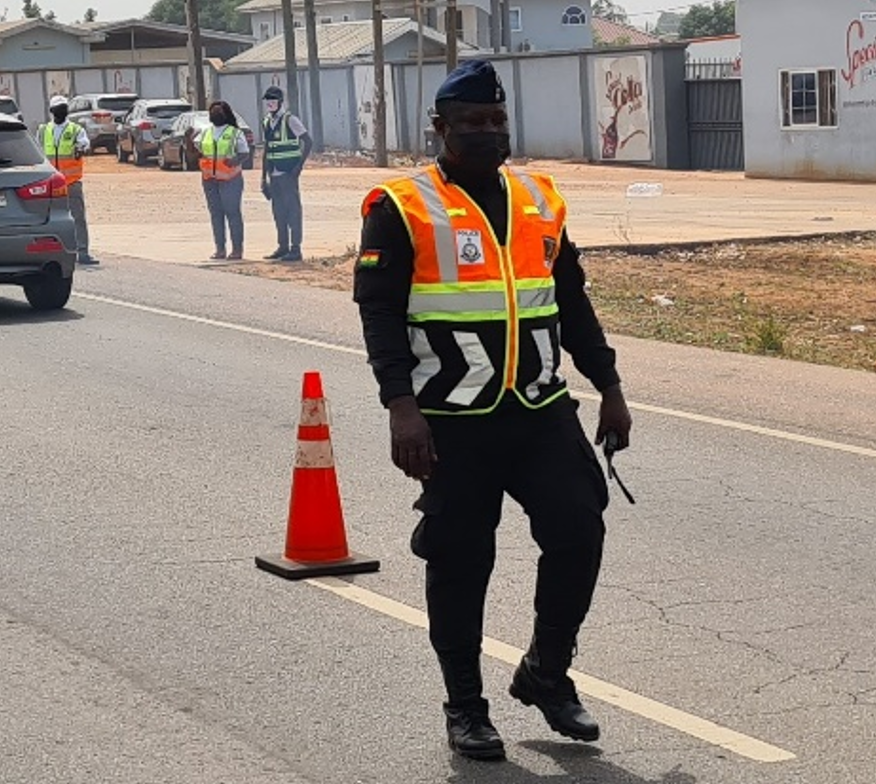
We are sure that their vast experience, professionalism, and dedication will be of great contribution to the BIGRS-supported Road Policing Capacity Building Programme in the Asia-Pacific and Africa regions.
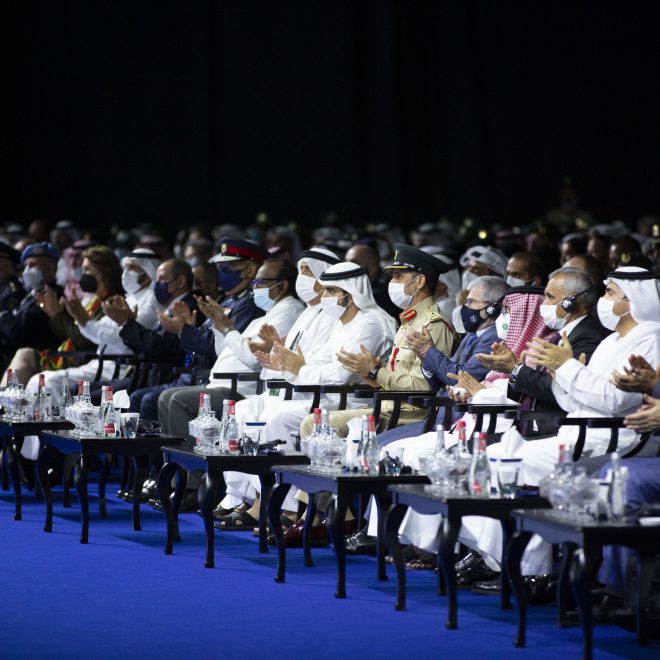
We are delighted to announce that GRSP will attend the World Police Summit 2023 in Dubai, United Arab Emirates, as a strategic partner. The conference, to be held from 7 to 9 March 2023, is set to bring together a global policing community to address today’s challenges and explore the latest developments in key enforcement areas.
The Centre for Automatic Traffic Enforcement in Poland (CANARD) was established in 2011 and its core mission is to prevent and reduce fatalities and crashes by installing and using speed cameras in the most dangerous places on roads across the country. Operations began in 2011 with 80 fixed devices; however, CANARD now manages approximately 600 modern devices such as fixed speed cameras, section control cameras, traffic light control devices and mobile speed cameras installed in vehicles.

The Centre for Automatic Traffic Enforcement in Poland (CANARD) was established in 2011 and its core mission is to prevent and reduce fatalities and crashes by installing and using speed cameras in the most dangerous places on roads across the country. Operations began in 2011 with 80 fixed devices; however, CANARD now manages approximately 600 modern devices such as fixed speed cameras, section control cameras, traffic light control devices and mobile speed cameras installed in vehicles. The following are some fresh key figures about road safety in Poland:
The results shown above have been significantly influenced by CANARD’s speed cameras, which work 24/7 every day of the year, regardless of the season or weather conditions.
In locations where it’s not possible to install fixed speed cameras (e.g., due to the lack of electricity, architectural issues, curvature of the road, etc.) vehicles equipped with mobile speed cameras are used to detect excessive speed.
A Day in the Life of Damian Wiktorzak (Poland)
My name is Damian Wiktorzak and I have been working for CANARD since 2011. For over 11 years I have been participating in formation, development and process optimization in order to reach the goals that we have as an organization. I have been the Deputy Director in CANARD for over four years and I have been directly supervising investigation and analytical units. Following this, I’d like to explain my daily routine as a CANARD Road Traffic Officer.
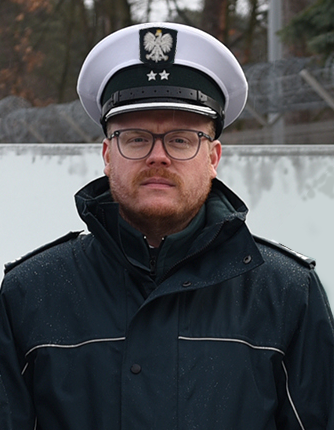
As one of the automatic traffic enforcement components, CANARD has 40 unmarked vehicles (VWs, Fords, BMWs, Peugeots), 29 of which are equipped with mobile speed cameras. Almost 90 officers use these vehicles every day. Road units work eight or 12-hour shifts, mostly during rush hours, between 6:00 AM and 6:00 PM.
Our unmarked vehicles enabled with mobile speed cameras have dual functionality; they can take detect offences in motion (by recording videos) and in fixed device mode in one of the 267 determined checkpoints in Poland. These checkpoints are located in high-risk places and have been selected based on a few key indicators:
Every shift starts with a briefing led by the head of the unit. We set the daily targets (fixed device mode, speeding, traffic light offences or preventative activities), and we verify our equipment is complete and that our uniforms are in optimal condition. After the briefing, officers head over to designated checkpoints.
We start doing fixed device mode activities at the checkpoint such as verifying road signs and a safe parking location (it is important to park a car parallel to the road axis). Afterwards, we move to the outer part of our speed camera as we need to set the radar head correctly. In the end, we must check speed camera accuracy by taking test photos. When everything is checked and we confirm it is working correctly, we check the camera settings such as the date and time or formal requirements like speed limits on test photos.
When all checks are correctly completed, we prepare to check vehicle speeds. Everything is automated in this step, as speed cameras take photos that are automatically transferred to the central processing system via GSM. One shift typically involves setting up at three to six checkpoints located in a given area. After checkpoint work is completed, officers return to the head office and supervise possible speeding and other traffic offences.
Mobile speed cameras are an excellent complement to a fixed device system. With these devices, CANARD can improve traffic safety in several locations each shift. Additionally, they are especially important for local communities that have drivers speeding near their homes. They are extremely well-received and contribute positively to the trust that people put in CANARD.
Automatic traffic enforcement carried out by CANARD is also very effective. Research shows that we have reduced fatalities and incidents in 98% of the country where speed cameras are located. This has been confirmed in national road safety strategies and action plans. The targets achieved with speed cameras prove that it is an efficient way to reduce the horrendous costs of car crashes and fatalities and certainly the best way to reach Poland’s vision of zero crash deaths in the future.
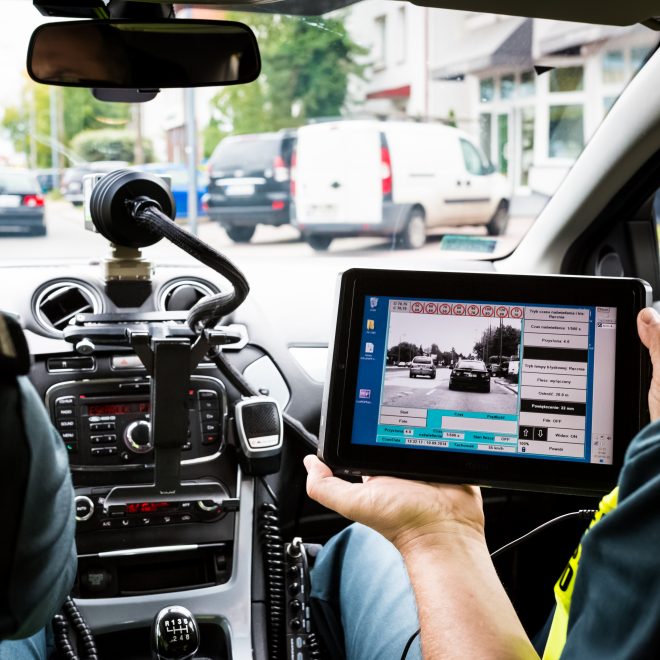
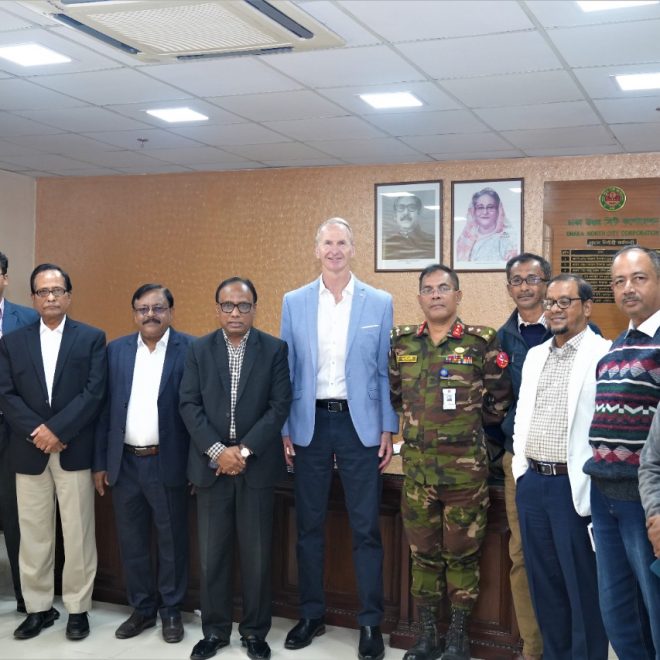
GRSP Asia Pacific Consultant Al Stewart and the local Bloomberg Philanthropies Initiative for Global Road Safety (BIGRS) team were warmly welcomed in both Dhaka North and Chattogram, Bangladesh, during January to progress the capacity building programme for the Dhaka Metropolitan Police (DMP) and Chattogram Metropolitan Police (CMP).
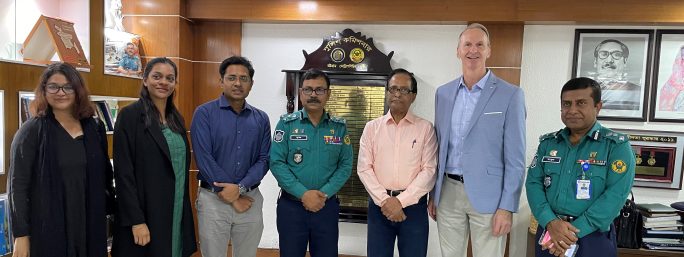
GRSP Asia Pacific Consultant Al Stewart and the local Bloomberg Philanthropies Initiative for Global Road Safety (BIGRS) team were warmly welcomed in both Dhaka North and Chattogram, Bangladesh, during January to progress the capacity building programme for the Dhaka Metropolitan Police (DMP) and Chattogram Metropolitan Police (CMP).
Additional Commissioner (Traffic) DMP Md Munibur Rahman—who showed leadership and support for this programme during its initial virtual delivery in 2022—has continued to assist in training by committing staff to further dates for in-person delivery. This ongoing training for the DMP received clear support from the Dhaka North City Corporation (DNCC) when the team met the CEO Md Selim Reza, the acting mayor, Chief Engineer Brigadier General Muhammad Islam and associated senior officials who acknowledged the requirement to work collectively with partners under a ‘Safe System’ model to reduce the current rate of road trauma.
The team’s reception in Chattogram was equally positive when they met the Mayor, Chief Engineer Rafiqul Manik, and senior officials at the Chattogram City Corporation (CCC) headquarters to discuss local and emerging road safety risks, and how the BIGRS programme can assist in coordinating partnership road safety interventions.
After this interaction, the team met with Police Commissioner Krishna Roy who highlighted his intentions to work in the interest of the welfare of his staff and the overall operational commitments of his department. It was pleasing that the team was granted the time in Commissioner Roy’s schedule to discuss the issues and receive his support for the programme in 2023.
GRSP will plan for training delivery in leadership, intelligence-led policing, speed, and crash investigation between May and September 2023. Moreover, we look forward to our ongoing interaction with partners in DNCC, DPM, CCC and CMP.

On 11 January 2023, GRSP’s Road Policing team met with the European Roads Policing Network’s (ROADPOL) President Elvira Zsinkai and General Secretary Sanja Veic to discuss potential areas of cooperation. The meeting was held at the International Federation of Red Cross and Red Crescent Societies’ (IFRC) office in Budapest, Hungary, where both groups shared valuable road policing experiences and anecdotes. In addition, GRSP’s road policing capacity building work for African and Asian enforcement agencies was highlighted.
ROADPOL is formed by European Traffic Police forces headed by senior police officers, and its main goal is to decrease the number of serious injuries and deaths on European roads.
ROADPOL operates three major working groups, all of which are led by representatives from different member countries who possess expertise in various road safety areas. The Operational Working Group, the Technology Working Group and the Tacho Web Group are branches that coordinate annual operations, identify road safety enforcement technology available in Europe, and focus on the fraudulent use of tachographs in the continent, respectively.
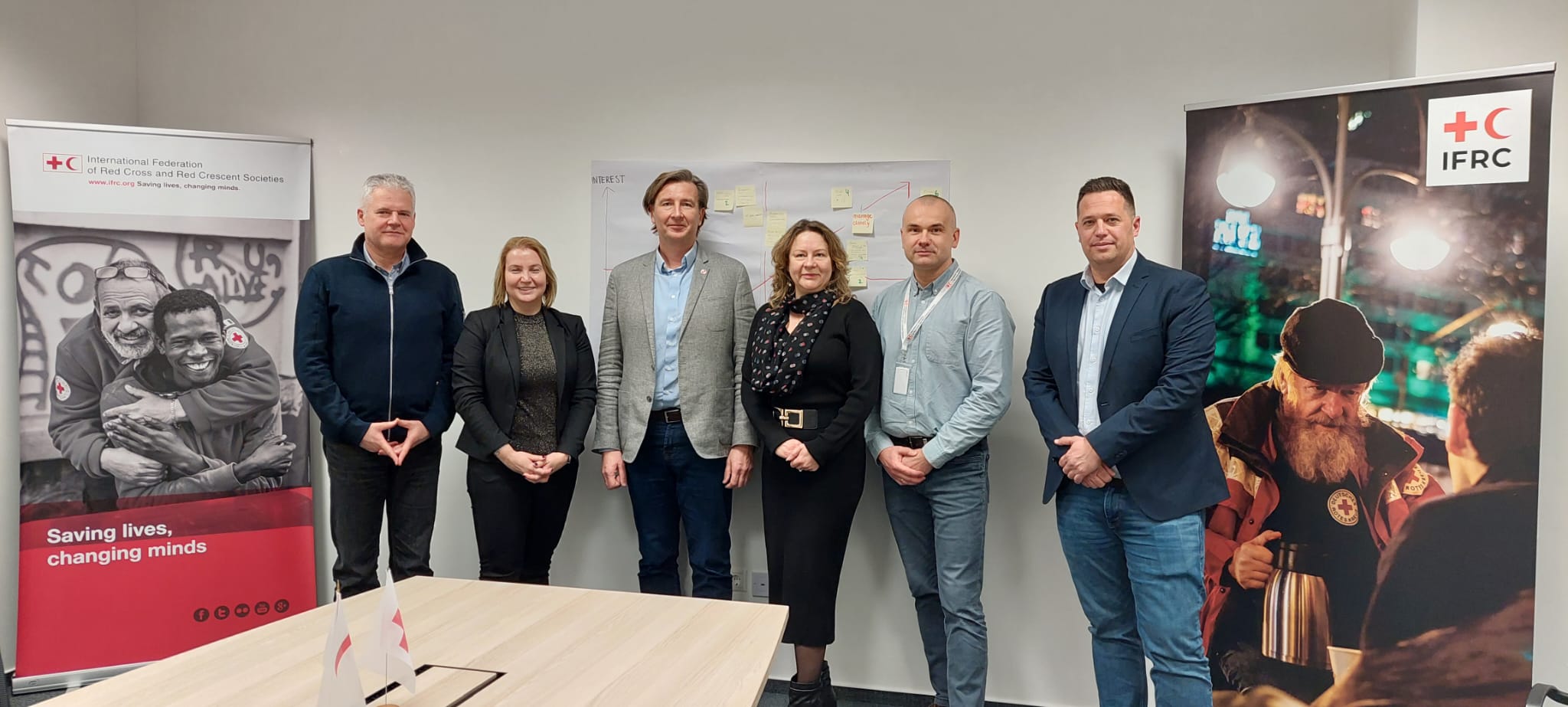
According to Waka Kotahi NZ Transport Agency, approximately 500 people are seriously injured or killed in speed-related road crashes in New Zealand each year. To address this, the agency produced an awareness campaign linked to the police enforcement programme to demonstrate how speeding will inevitably lead to fines, injuries or death.
More »
According to Waka Kotahi NZ Transport Agency, approximately 500 people are seriously injured or killed in speed-related road crashes in New Zealand each year. To address this, the agency produced an awareness campaign linked to the police enforcement programme to demonstrate how speeding will inevitably lead to fines, injuries or death.
The campaign is called ‘Through my Eyes’ as it displays the point of view of a police officer during a shift. The objective is to show New Zealand’s general public that road users are always finding reasons to excuse their speeding. Ultimately, these are excuses that police officers hear on a daily basis.
The campaign’s first phase was launched on 11 December 2022, reaching people via social media, radio spots, TV ads, billboards, and bus shelters. Its production is part of New Zealand’s National Road Safety Promotion Programme, a project that implements marketing campaigns and education strategies in support of the country’s Road to Zero scheme.